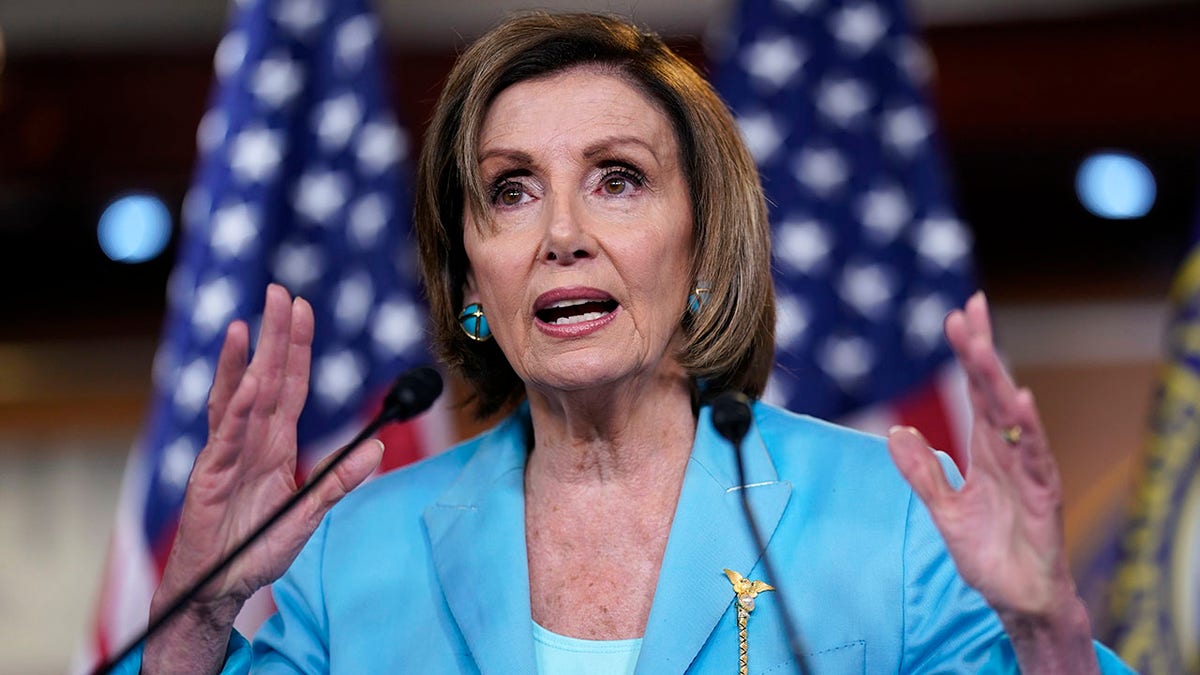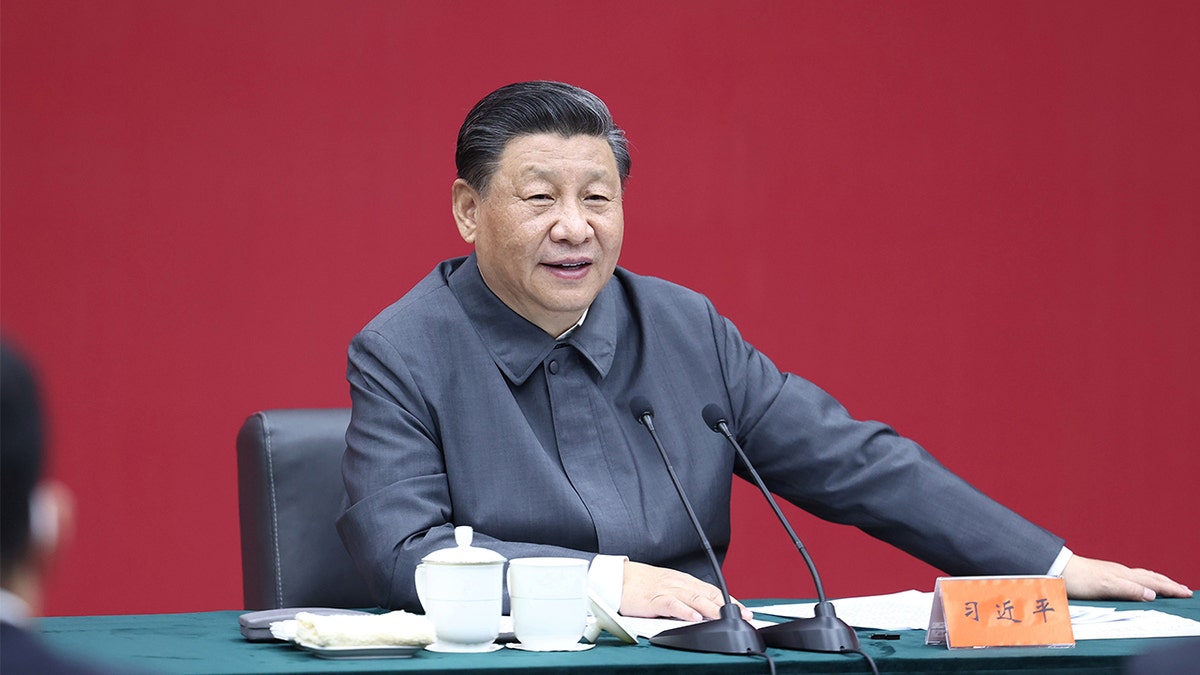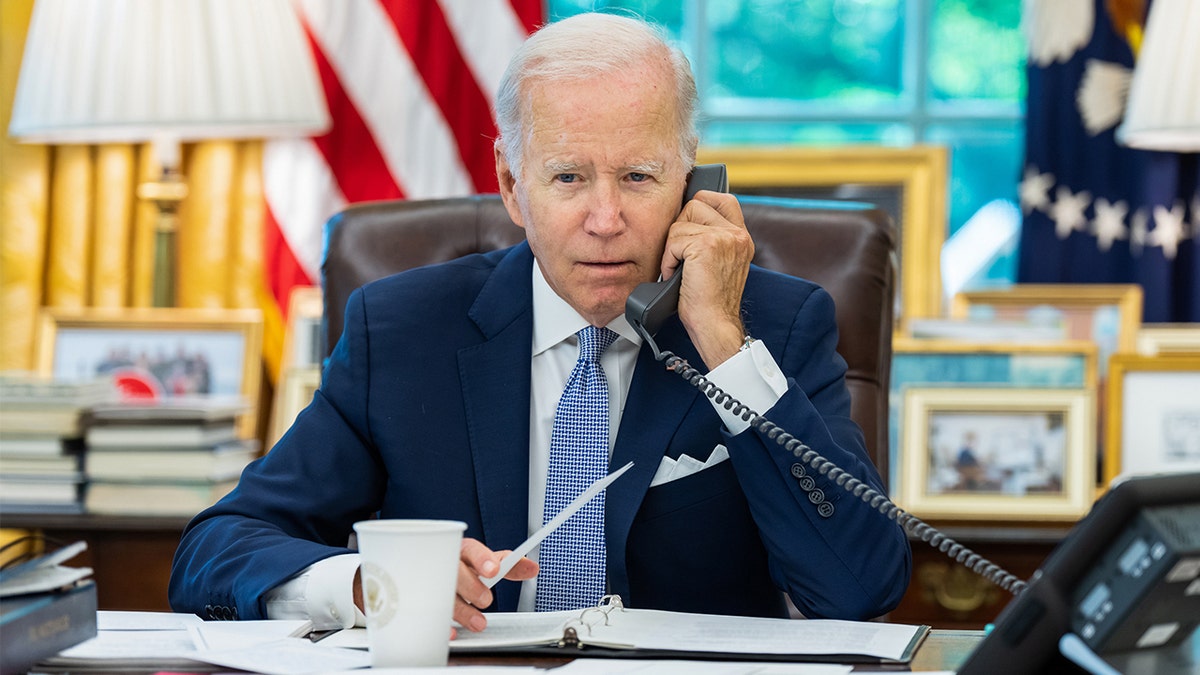Taiwanese nationals recently discussed China threat, US support and President Biden
Fox News Digital spoke with residents in Taiwan's capital city, Taipei last month, on the biggest issues facing the island nation. One man defiantly said on the threat of a Chinese invasion, 'There's nothing we can do but fight back.'
KAOHSIUNG CITY, Taiwan – Taiwan is used to being threatened by China. Hardly a week goes by without a warning from a Chinese Communist Party (CCP) official that China will "smash to smithereens" any moves toward independence by the democratically-governed island of over 23 million.
Local media reports indicate most in Taiwan appear unconcerned that a possible visit to the island by U.S. House Speaker Nancy Pelosi, D-Calif., could escalate into a war, and most doubt that Beijing will make good on the bellicose pledges should Pelosi follow through with what was termed a "tentative plan" to visit Taiwan during her tour through Asia.
"We’ve lived with it for decades and — for me at least — I’m pretty numb to yet another warning from China," Lee Liang, a Taipei-based manager for a major international brand told Fox News Digital, adding that he’s not buying China's bluster.
Lee added, however, that he hasn’t paid all that much attention to the specific threats of military action by China, as he’s been preoccupied with the tail end of a COVID outbreak that’s severely disrupted life here for several months.

Speaker of the House Nancy Pelosi, D-Calif. (AP Photo/J. Scott Applewhite)
"They’re [China] so full of it," southern Taiwan resident and mother of two Lu Ya-chen told Fox News Digital. She also doesn't expect an outbreak of hostilities.
Lu lives in Kaohsiung City, home to Taiwan's navy headquarters.
"As any mom knows, if you don’t follow through with a threatened punishment, you’re deemed a pushover," she said. "They [China] make threats every other day but never follow through. They don’t scare me."
Despite the shoulder shrugging by many in Taiwan, some are concerned of being in uncharted waters. Rather than the usual finger wagging and vows of "severe repercussions," this time various voices coming out of the People’s Republic of China (PRC) have made more than just hints of direct military action should Speaker Pelosi visit the island.
When Newt Gingrich visited Taiwan as the incumbent speaker of the House in 1997, China also protested but wasn’t in much of a position to do anything about it, especially with President Clinton having already demonstrated his willingness at the time to send in the Seventh Fleet. China’s military, however, has matured greatly over the past 25 years.
Unlike in 1997, the PRC’s armed forces are capable of executing a wide array of military actions.

Chinese President Xi Jinping sits with representatives of teachers and students at a symposium at Renmin University of China in Beijing April 25, 2022. (Ju Peng/Xinhua via Getty Images)
GOP LAWMAKER DEFENDS PELOSI'S POTENTIAL TAIWAN PLANS, SAYS ‘WEAK’ BIDEN SHOULDN'T INTERFERE
Taiwanese officials from both the ruling Democratic Progressive Party (DPP) and the main opposition party, the Kuomintang (KMT), are welcoming a visit by Speaker Pelosi and rejecting Beijing's threats as hot air. But some Chinese observers here worry that politicians in both the United States and Taiwan are being too dismissive of the PRC’s strongly-worded warnings, some of which are eerily specific.
For example, the former editor of China’s state newspaper, the Global Times, suggested China’s People’s Liberation Army Air Force (PLAAF) might fly fighter jets directly over Taiwan, something not seen since the KMT lost the last Chinese civil war and retreated to the island in 1949.
Should that happen, Taiwan would almost definitely scramble its own fighter jets. If one air force were to fire on another, or should an accident occur, it could trigger the first shooting war between the two sides of the Strait since the late 1950s.
Hong Kong's South China Morning Post offered other scenarios such as the PLA announcing sudden military exercises near the Taiwan Strait. This would facilitate the imposition of a no-fly zone, perhaps even forcing Pelosi's aircraft to take a detour.

President Biden posted a photo of him speaking on the phone after a call with Chinese President Xi Jinping, July 28, 2022. (White House)
CHINA IS NO. 1 DOMESTIC NATIONAL SECURITY THREAT, AND BIDEN ADMINISTRATION WON'T ADMIT IT
When Pelosi originally announced a trip to Taiwan in April, which was canceled after she tested positive for COVID, China grumbled but didn’t get nearly as verbally aggressive as this time. This is almost certainly due to timing.
Communist Party leaders met at the famed Beidaihe resort in late May for talks on the future. But Xi Jinping’s rule is facing a host of issues, from his insistence on zero-COVID to a slowing economy. The congress of party elders that met at Beidaihe may not all be fully supportive of the policies of China’s leader.
In November, President Xi Jinping is set to be nominated and elected to an unprecedented third term after the Chinese constitution was amended in 2018.
CLICK HERE TO GET THE FOX NEWS APP
An appearance of weakness over the nearly sacred demand that the world accepts China's sovereignty over Taiwan at this juncture would almost certainly be exploited by elements in the CCP that may have misgivings over Xi’s rule.
From a historical perspective, in 1958, Communist Party Chairman Mao Zedong decided to fire over 40,000 rounds of artillery at Kinmen, a cluster of islands roughly six miles off the Chinese coast. The Second Taiwan Strait Crisis of 1958 ended in a stalemate, and Kinmen remains under the control of the Republic of China (the ROC), Taiwan’s official name.
Taiwan observers say the biggest worry now may be that no one in this game can back down or even make concessions without serious consequences to reputation or authority, which could be a dangerous combination of factors.










































